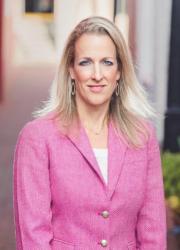It’s summer and you know what that means: it’s time to ice your latte or lemonade, head to the porch, and catch up on your reading. For those who’ve attended Acton University before, you know the staff curates an impressive collection of books for sale. I’ve included some of those incredible books here, which you can buy with just a click on your phone if you aren’t here in Grand Rapids with us.
-
Full-Time: Work and the Meaning of Life by David Bahnsen. I had the opportunity to serve on a panel organized by the National Review Institute to discuss this provocative and timely book. Bahnsen provides a theological case for our work’s inherent value and dignity. Rather than viewing work as purely practical and something we dread, we can change our perspective if we begin to see paid work as one aspect of our vocation. Work becomes an avenue by which we share our creativity and human capital with others in the marketplace. It’s also a form of service that can foster human flourishing while bringing us joy and fulfillment. Bahnsen rejects ingrained cultural attitudes toward retirement, which encourage us to view work as a race to the finish line so we can finally spend what’s left of our lives enjoying ourselves at the lake house or on the golf course. In fact, he argues that our work never ends, and while it may change as we age, we should always seek to apply our labor productively in the world. You can listen to Roger Ream and me interview David on his book here.
- Rethinking Charity: Restoring Dignity to Poverty Relief by Ismael Hernandez and published by the Acton Institute. By preordering it here, you can be first in line to read this important book. Hernandez gets poverty relief right because he puts the unique human person at the center of the discussion. Christians everywhere agree that we must care for the poor, but we must also treat them with dignity and respect in our humanitarian efforts. Compassion alone is not enough, and good intentions will not suffice; the issue of poverty must be met with effective action that treats people as capable protagonists in their own stories. Decades of public and private charity have failed because we often unintentionally dehumanize the poor by fostering dependency rather than personal responsibility. Hernandez compels us to rethink our efforts and to consider the freedom that comes when everyone lives out his or her purpose.
- The Road to Socialism and Back: An Economic History of Poland, 1939-2019by Peter J. Boettke, Konstantin Zhukov, and Matthew Mitchell, which you can purchase as an ebook for just under two dollars. Many thought that after the fall of the Berlin Wall and the demise of the Soviet Union, the battle of ideas was over and it was the end of history. Yet today many are flirting with so-called democratic socialism as a more egalitarian way to manage an economy, thus proving that the battle of ideas rages on. Boettke, Zhukov, and Mitchell provide a detailed case study of Poland’s road to socialism and its subsequent fight for freedom. The Polish experience offers concrete examples of why we should not repeat socialism’s mistakes; it also demonstrates the stark contrast between the promises of socialism and its grim realities. You can listen to Dr. Boettke discuss the book project here.
- Superabundance: The Story of Population Growth, Innovation, and Human Flourishing on an Infinitely Bountiful Planet by Marian L. Tupy and Gale L. Pooley. A rags-to-riches story for the entire planet doesn’t come along every day—yet here it is. There is so much good news around us, yet we remain mired in trendy apocalyptic stories of gloom and doom. While there are always problems, there is still much to celebrate, and, remarkably, things can get even better! This book upends the tired, false narrative that we must curb population growth to save the planet, when in fact the opposite is true. Human beings are the source of human capital, the most important kind, and unleashing human creativity allows us to flourish. We’ve escaped the stark zero-sum games of history and now live in a healthier and wealthier world. This is not just a feel-good story; it’s powered by the empirical realities of how far we have come and how much farther we can go if we get institutions—and the ideas that inspire them—right. Abundance today and in the future means we need population growth and economic freedom.
- The Fatal Conceit: The Errors of Socialism by F.A. Hayek. This is an oldie but a goodie, but in my view one cannot read or re-read too much Hayek. He spent his entire career fighting for freedom and warning of the impossibility of realizing socialism’s utopian goals. He published this book in 1991, the same year George H.W. Bush awarded him the Presidential Medal of Freedom and a year before his death. Hayek defended the free society project until the end, and he was never one to mince words, arguing that socialism would fail because of control problems and knowledge problems. The outcomes promised could not be delivered without the ability to engage in economic calculation, which requires private property rights, market prices, and profits and losses. Hayek knew that the idea that we can effectively use technocratic and top-down planning to arrange economies in the image of experts is but a fatal conceit that would result in the demise of those societies. Hayek also knew that freedom requires intellectual vigilance and that the errors of socialism and its false promises were intoxicating. These lessons remain pertinent today and are worth revisiting.
Summer is a beautiful time to catch up on new releases and revisit the classics. This list offers both and covers a range of issues near this economist’s heart. Lifelong learning means a lifetime of reading, so grab your lemonade and get to it.

